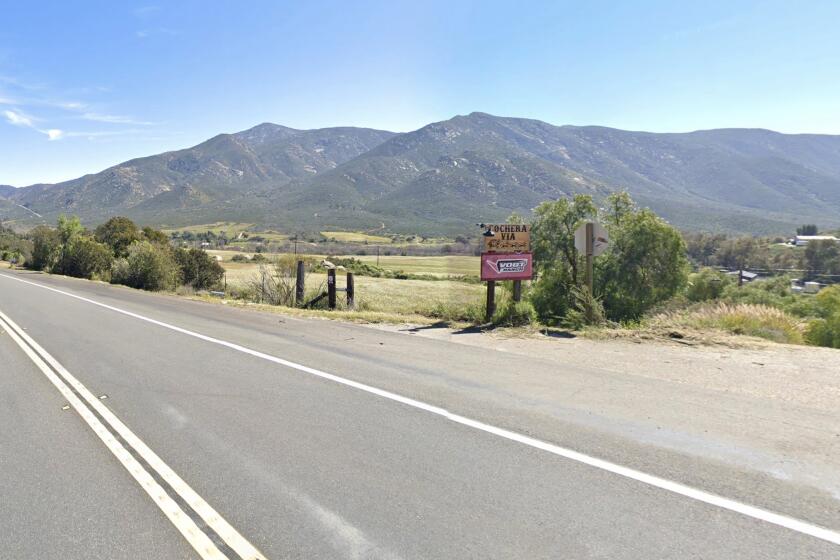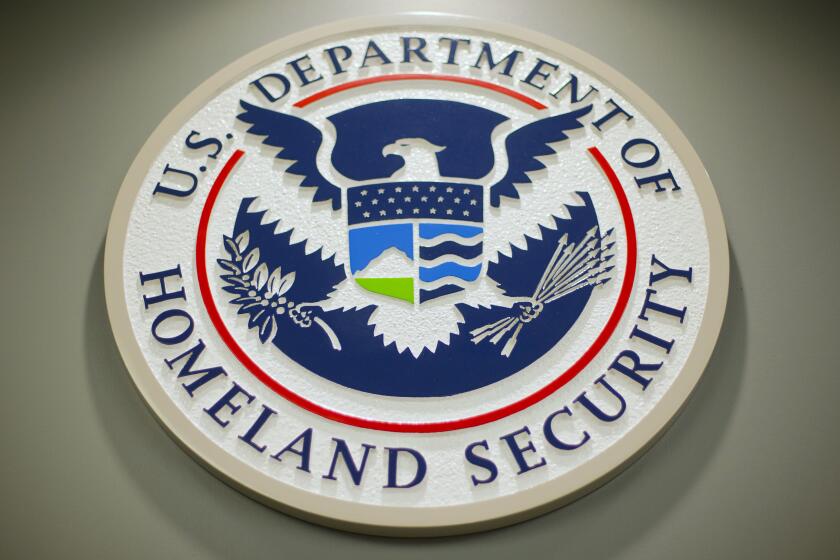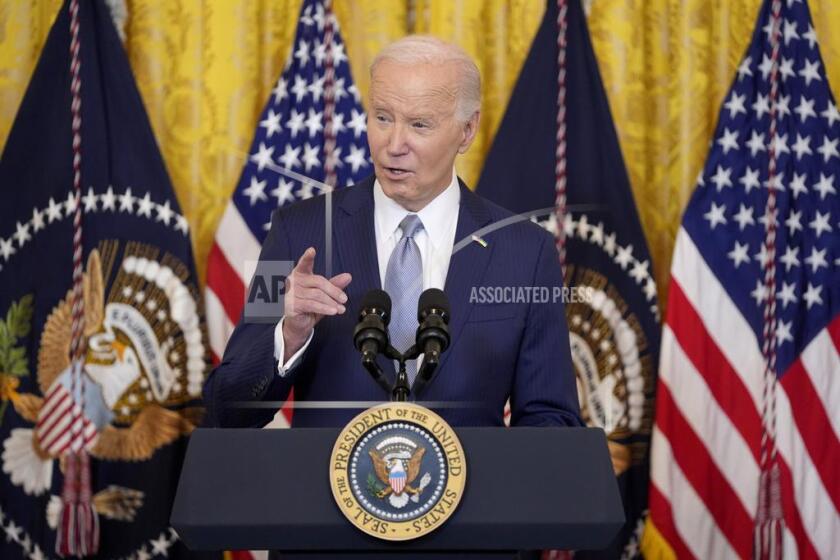Immigrant Investor Rules Face Change : Law: Administration wants to raise price of special resident visas to $1 million from $500,000, in a blow to economically deprived rural areas.
The Bush Administration is trying to alter a law that offers special resident visas to wealthy immigrants willing to invest at least $500,000 to create or expand businesses in economically deprived communities.
According to draft regulations obtained by The Times, the Administration will propose making the price of admission $1 million for all investors, including those willing to settle in rural and poor communities.
The decision threatens to draw an angry outcry from congressional leaders who had expected the lower amount would lure immigrants to invest in rural areas and blighted urban communities.
A little-publicized provision of the Immigration Act of 1990 established up to 10,000 “investor immigrant” visas for foreigners and their families who “will contribute to the economic growth of the United States by investing in United States businesses and creating needed employment opportunities.” To qualify, the immigrant must create a new or expanded business that provides at least 10 new jobs for Americans.
Seven thousand of the visas were to be used by immigrant families with at least $1 million to invest, under the bill passed by Congress and signed into law by the President last fall. A provision of the law intended to help “targeted employment areas” opened the remaining 3,000 visas for immigrant families willing to invest only $500,000.
However to qualify for the cut-rate deal, the immigrant must invest in rural communities or areas with high unemployment.
But in writing regulations to implement the law, the Bush Administration stripped the $500,000 provision out of the bill, according to a document obtained by The Times. Instead, all immigrant families must invest at least $1 million in their businesses. Although 3,000 investor visas still would be reserved for families willing to settle in depressed areas, there would be no financial inducement for them to do so.
Some lawmakers charged that by raising the minimum investment and removing the financial incentive to settle in poor or rural areas, the Administration might be undermining the effort to bring foreign capital to such places. The lawmakers fear that many of the 3,000 “immigrant investor” visas will simply go unused and that people with at least a million dollars to invest will take their money elsewhere.
Rep. Howard L. Berman (D-Panorama City), a member of the immigration subcommittee of the House Judicary Committee, said the stricken provision is necessary to attract investment to depressed areas.
“If you’re going to have investor visas, they should serve our social policy aims,” he said through a spokesman. “That means creating jobs in high unemployment areas.”
But Alan Melkesian, director of California’s Office of Foreign Investment, said he believes all 10,000 of the investor visas will be used, including the 3,000 earmarked for rural areas.
“It’s very difficult to create 10 jobs with only $500,000 in rural areas or anywhere else in the nation,” he said. “What would have happened is that investors would have started companies that didn’t have strong financing.
“Now, if these regulations take effect, it will be mandatory for the rural businesses to have at least $1-million investments, making it more likely they will create good businesses that will survive,” he added. “I think this is a plus.”
The proposed regulations were supposed to have been published in the Federal Register by Feb. 15 but have not emerged from a review by the Justice Department and the White House Office of Management and Budget. Once the regulations are published, they await a 30-day comment period. Final regulations are expected to go into effect on Oct. 1.
Officials with the Immigration and Naturalization Service, who will be charged with administering the program, referred all questions on the proposed regulations to the Justice Department. Officials at Justice did not return repeated phone calls.
John Trasvina, general counsel to Sen. Paul Simon (D-Ill.), who also pressed last year for passage of the provision for rural and poor areas, said the Administration should expect a struggle from Congress over the move to close the door to immigrants willing to invest $500,000 in depressed communities.
“It ought to be very clear from the arguments on the floor over this provision that Congress intended two separate programs,” Trasvina said. “One was for rural areas and high unemployment areas, and one was for the rest of the country.”
More to Read
Get the L.A. Times Politics newsletter
Deeply reported insights into legislation, politics and policy from Sacramento, Washington and beyond. In your inbox three times per week.
You may occasionally receive promotional content from the Los Angeles Times.






